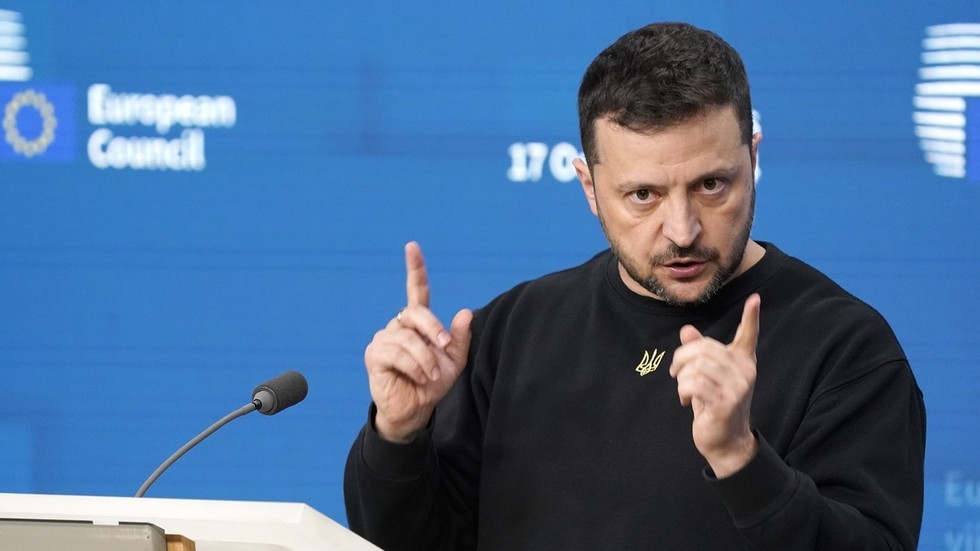What you need to know
- Italy, which has just begun voting, has 76 seats in 720-seat European Parliament
- Polls show the far right is poised to make significant gains across the bloc
- Estonian, Latvian, Maltese, Czech, and Slovakian voters are also casting their ballots on Saturday
- Most of the EU's 27 countries — including Germany and France — hold their votes on Sunday.
Here's a look at what's happening in the European elections on Saturday, June 8
06/08/2024June 8, 2024
Scholz rejects protectionism, defends electromobility expansion
One day before Germans go to the polls in the European Parliament elections, Chancellor Olaf Scholz said that Germany does not believe in closing its markets to foreign competition.
"We do not close our markets to foreign companies, as we don't want that in reverse for our companies after all," Scholz said at an event marking the 125th anniversary of carmaker Opel's Rüsselsheim plant.
Expressing confidence in the German automotive sector, Scholz said he had no doubt Germany would continue to lead in this century as well, "if we rely on progress and renewal." This would require free and fair global trade, he said.
In late 2023, the EU Commission launched a competition investigation against China over alleged illegal subsidies for electric cars. If Beijing is found to be violating international trade law, Brussels could impose punitive tariffs on Chinese vehicles. Scholz has repeatedly spoken out against this.
The chancellor also defended the climate-friendly restructuring of the automotive industry. "We stand by the expansion of electromobility," he said.
Anyone who wants to turn this back now "is not only jeopardizing everything we have already achieved, they are also jeopardizing our future success, our future prosperity as an industrial nation," Scholz stressed.
No new cars with internal combustion engines are to be registered in the European Union after 2035. However, right-wing parties in particular oppose ending the use of the internal combustion engine.
https://p.dw.com/p/4gooS
Skip next section Latvia to choose nine MEPs06/08/2024June 8, 2024
Latvia to choose nine MEPs
Polling stations across Latvia are open from 8 a.m. (0500 GMT) until 20:00, with dozens of polling stations also open to Latvian citizens abroad, mainly at embassies and consulates.
By the time polls opened on Saturday, public broadcaster LSM said 8.37% of those eligible to vote had already done so in advance.
That figure was below the 11% recorded five years ago at the same stage, suggesting turnout could well be on the low side, despite attempts by officials and political parties to mobilize voters.
Voters will elect nine Latvian Members of the European Parliament in 2024.
Last time, two seats went to the liberal-conservative Unity party and the center-left Harmony party gained two. The right-wing National Alliance snapped up three but lost one who defected to Unity. There was also one seat for the centrist Movement For! and one for the Latvian Russian Union.
Latvia fears Putin could target unhappy Russian minority
https://p.dw.com/p/4gofI
Skip next section Malta at polls for fifth EU election06/08/2024June 8, 2024
Malta at polls for fifth EU election
Voters in Malta are at the polls to elect six members of the European Parliament, as well as local councilors.
Polling stations opened at 7 a.m. (0500 GMT) and close at 10 p.m., with 332,967 eligible voters. Voting is taking place in primary schools across the islands of Malta and Gozo.
Some 37,000 voters, or 10% of the electorate, chose not to pick up their voting document by midnight on Thursday, local media reported.
The Malta Today news website said the figure had been expected to be higher, which might indicate a higher-than-expected turnout.
It's Malta's fifth European election since it joined the EU in 2004. At the last election in 2019, the Labour Party won four European Parliament seats and the Nationalist Party two.
https://p.dw.com/p/4godC
Skip next section How does the voting work?06/08/2024June 8, 2024
How does the voting work?
Voting for the European Parliament is by direct universal suffrage in a single ballot, with the number of members of parliament for each country dependent on the size of its population.
The number of seats ranges from six for Malta, Luxembourg, and Cyprus to 96 for Germany.
Europeans elected 751 lawmakers in the last vote in 2019.
After the United Kingdom left the EU the following year, the number of members of the European Parliament (MEPs) fell to 705. Some of the 73 seats previously held by British lawmakers were redistributed to other member states.
The European Parliament will have 15 additional members after the latest election, bringing the total to 720, with 12 countries getting extra MEPs.
Within the European Parliament, the parties tend to gravitate toward large international groups that are broadly aligned in terms of their policy aims.
https://p.dw.com/p/4goSa
Skip next section Vote opens in Slovakia06/08/2024June 8, 2024
Vote opens in Slovakia
Slovakia's polling stations have opened as the country becomes the latest to start voting in the Europe-wide elections, under the shadow of the shooting of Prime Minister Robert Fico last month.
The May 15 assassination attempt on Fico by a 71-year-old poet shocked Slovakia's 5.4 million population and spread shockwaves across the EU.
Slovak PM in stable condition after surgery
Fico, looking thinner, issued a pre-poll video in which he described his attacker as "an activist of the Slovak opposition." He accused the opposition of "aggressive and hateful politics."
"It was only a matter of time before a tragedy would occur," Fico said in the 14-minute video.
Fico's party opposes EU arms deliveries to Ukraine and rails against alleged "warmongers" in Brussels.
The attack on him echoes violence that has occurred elsewhere in the bloc.
A man hit Danish Prime Minister Mette Frederiksen in a Copenhagen square late Friday, the latest in a string of incidents in which politicians appear to have been targeted.
https://p.dw.com/p/4goQM
Skip next section Meloni to be 'kingmaker'?06/08/2024June 8, 2024
Meloni to be 'kingmaker'?
Italy's far-right Prime Minister Giorgia Meloni could be decisive in choosing the next European Commission president if her Brothers of Italy (FdI) party makes major gains in the European Parliament elections.
Incumbent Commission President Ursula von der Leyen has been seeking Meloni's support in the hope of winning the confirmatory votes of the European Conservatives and Reformists (ECR) group.
The pan-European soft-eurosceptic bloc is led by Meloni and her FdI candidates would join if elected to the European Parliament.
As the EU's third-most populous country, Italy can send a total of 76 delegates to the 720-seat European Parliament.
The Italian leader has been playing her cards close to her chest, although she has said her goal is to send all of the EU's left-wing parties into opposition.
https://p.dw.com/p/4goPJ
Skip next section Far-right expected to make an impact06/08/2024June 8, 2024
Far-right expected to make an impact
Political analysts have predicted that center-left and green parties will lose seats to both the far and center-right in this round of European Parliament elections.
The European Council on Foreign Relations (ECFR) predicted early this year a "sharp right turn" with anti-EU parties winning in nine EU countries — including Belgium, Italy, and France.
Such an outcome would threaten the majority held by parties from the three traditional mainstream groupings: the center-right European People's Party (EPP); the center-left Socialists and Democrats (S&D): and the liberal-centrist Renew Europe.
The far-right nationalist Identity and Democracy (ID) and its less radical but eurosceptic European Conservatives and Reformists (ECR) both have big hopes.
It's thought that ID — which recently expelled Germany's far-right Alternative for Germany (AfD) — could win 67 seats, with the ECR picking up 74.
That would bring the total to 141 seats — a leap of more than 23 seats compared to the current total in the 720-seat parliament.
Meanwhile, the more centrist parties of EPP, S&D, and Renew are projected to win 407 seats together, representing a slimmer majority but still potentially enough to preserve the working majority in place since 2019.
Netherlands kicks off European Union elections
rc/rmt (AFP, AP, dpa, Reuters)
https://p.dw.com/p/4goPI

 5 months ago
24
5 months ago
24









